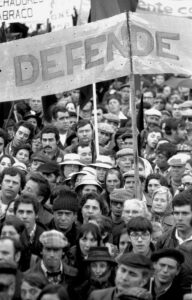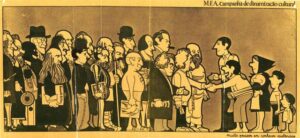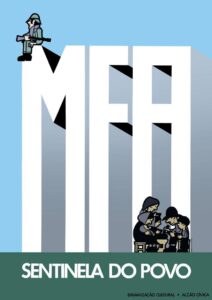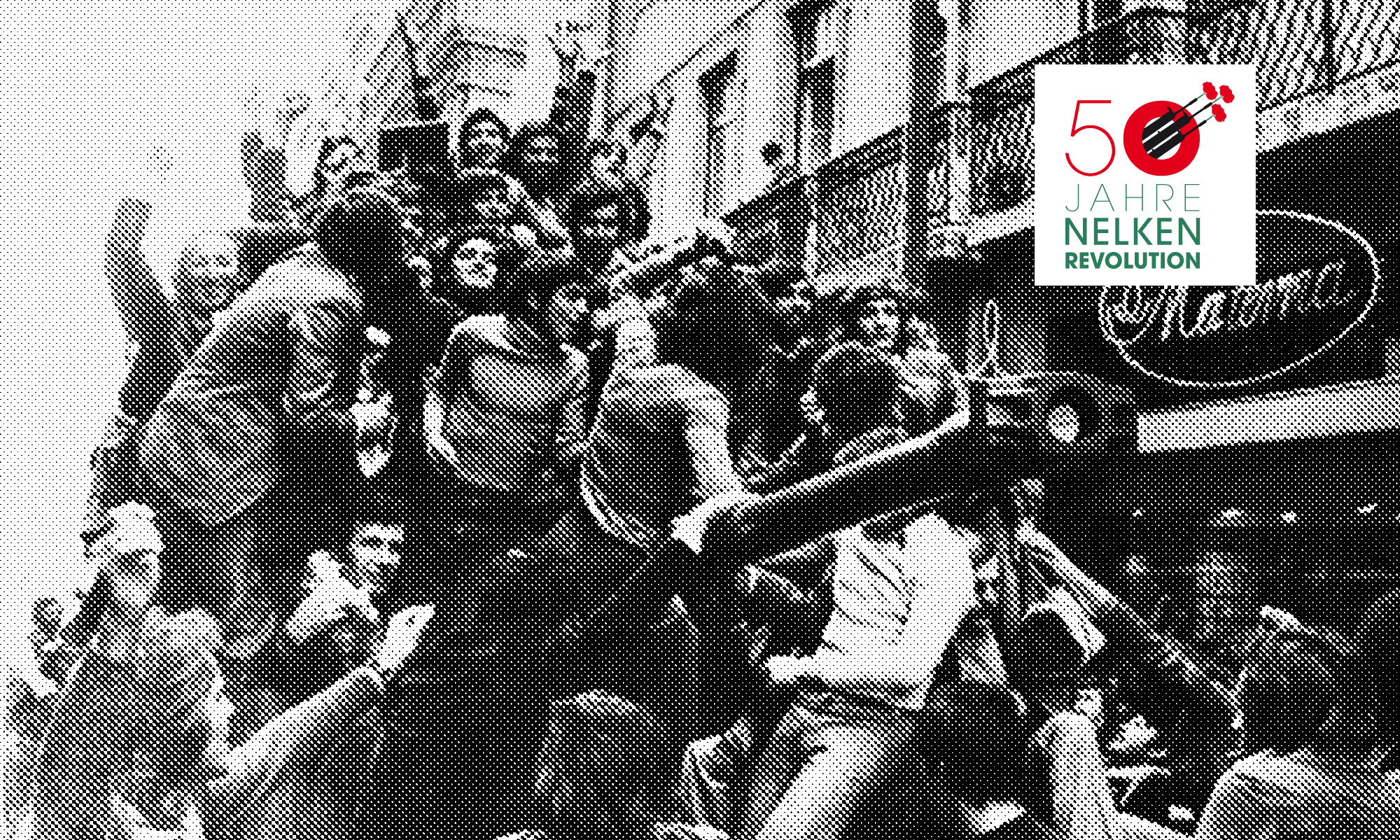Huge marches on 1 May 1974 were a sign of society’s shift to the left. The basis was a broad front of industrial and rural proletariat as well as parts of the middle class and bourgeoisie.
The First Provisional Government was formed on 15 May from various political currents. It introduced socio-political measures such as a minimum wage. However, the economic situation deteriorated due to the global economic crisis, flight of capital and a collapse in tourism. Unemployment rose sharply. The banks refused to bail out small companies with loans and the large landowners refused to create jobs. Both deliberately exacerbated the crisis.
The government collapsed in July when President Spinola tried to impose an authoritarian regime. The MFA established a Second Provisional Government under the PCP-affiliated Vasco Gonçalves. In September, Spinola, reactionary parties and old elites called for a right-wing march to Lisbon to topple the government. However, the MFA, trade unions, left-wing parties and working class people were able to prevent this.

Defenders of the Carnation Revolution at one of the countless demonstrations. There were 200,000 people at the 1st May rally in Lisbon alone. A million throughout the country, even in small towns, and that with a population of close to 9 million.

Supplement to the daily newspaper O Século on 1 May 1974 with the title „the united people will never be defeated“.

MFA and a Portuguese family greet famous scientists and artists. Poster by the well-known graphic artist Joáo Abel Manta for the MFA’s Cultural Dynamisation Campaign. It was intended to educate the rural population about the revolution. In addition to events, discussions, theatre, etc., practical help was also provided, such as the construction of sewage systems, electricity supplies, roads and community centres.
 „MFA – Guardians of the People“, also by Joáo Abel Manta. The left-wingers in the MFA considered it their responsibility to improve the social situation of the lower classes.
„MFA – Guardians of the People“, also by Joáo Abel Manta. The left-wingers in the MFA considered it their responsibility to improve the social situation of the lower classes.
Images
Klaus Steiniger
www.esquerda.net/sites/default/files/o_seculo.jpg
Gerd Koch
